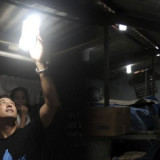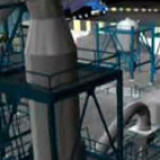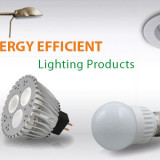Removing Microplastics in Water: Dr. Katrin Schuhen’s Motivating Solution
Microplastics, defined as fragments of any plastic type less than 5 mm (0.20 in) in length by the U.S. National Oceanic and Atmospheric Administration (NOAA) and the European Chemicals Agency, pose a significant threat to our environment. These minuscule particles infiltrate natural ecosystems through various sources such as cosmetics, clothing, food packaging, and industrial processes, leading to widespread pollution in in both land and water. Moreover, microplastics are abundantly found in water bodies, ranging from ponds and lakes to rivers, seas, and oceans, endangering both marine life and humans.
The impact of microplastics on our health is alarming. It causes oxidative stress, DNA damage, organ dysfunction, metabolic disorders, immune responses, neurotoxicity, as well as reproductive and developmental toxicity. Moreover, epidemiological evidence suggests a correlation between microplastics exposure and various chronic diseases.
In the battle against microplastic pollution in water, Dr. Katrin Schuhen and her groundbreaking technology play a pivotal role. Additionally, as the inventor, founder, and CEO of Wasser 3.0, a non-profit company based in Germany, Dr. Schuhen brings a wealth of expertise gained from her Ph.D. in Chemistry and experience in both the medical and polymer industries. Between 2012 and 2018, she served as a junior professor for Organic and Ecological Chemistry, dedicating her efforts to researching and developing sustainable solutions for detecting, removing, and reusing microplastics and micropollutants from water.
Wasser 3.0, under the leadership of Dr. Katrin Schuhen, operates with three core concepts to eliminate inorganic (heavy metals), organic (pharmaceuticals, pesticides), and microplastic contaminants from water, ultimately striving for zero pollutants. In fact, the name Wasser 3.0 is derived from the German word for water (“Wasser”), emphasizing their commitment to achieving water purity.
Dr. Katrin’s Solution
By 2018, Dr. Schuhen and her team successfully developed a Minimum Viable Product (MVP) and scientifically proven prototypes for diverse water scenarios. Two years later, Wasser 3.0 transformed into a non-profit company, embodying Dr. Schuhen’s vision of prioritizing people and the planet in the green-tech sector. With a core team of four, led by Dr. Schuhen as CEO, Wasser 3.0 continues to expand its research, education, and communication efforts, contributing to the social and ecological transformation.
How this Technology Works
The innovative solution offered by Wasser 3.0 involves using hybrid silica gels, non-toxic chemicals that function like glue. When introduced into water containing microplastics and micropollutants, the silica gels cause the contaminants to clump together. This process facilitates easy removal from the water surface without the need for a filter. The collected agglomerates are then repurposed as fillers in construction industries or for other applications, effectively closing the loop.
Their elimination technology, aligned with the goal of achieving microplastic-free waters within their comprehensive strategy of Wasser 3.0 detect | remove | reuse, streamlines the historically complex, costly, and time-consuming detection of microplastics. Wasser 3.0 has developed an easy-to-use, cost-effective, and rapid method for continuously monitoring and optimizing their water treatment processes.
In concluding, let us extend our best wishes to Dr. Katrin Schuhen and the Wasser 3.0 team in their mission to liberate our planet from the scourge of microplastics.
Dr. Katrin Schuhen on TEDx Talks on YouTube































